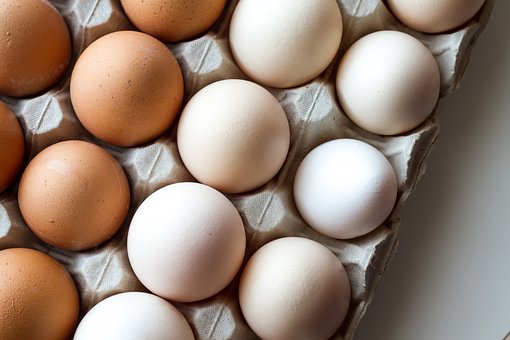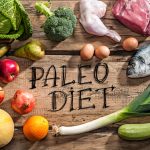You have probably consumed a huge amount of eggs throughout your lifetime (an estimate of 279 eggs per annum, suggested by the American Egg Board) thus, you most likely consider yourself an expert on them. But do you?
There are some straightforward facts about eggs. For instance, these foods are abundant in vitamin D, folate, vitamin B2, selenium, iron, vitamins A and E and other vital minerals.
One big egg offers an impressive 6 grams of protein and a minimal amount of saturated fat, just 1.6 grams per individual egg. It really is incredible how much nutrition is packed into one small egg! Andrea Ovard, a registered dietitian and certified specialist in sports dietetics for IdealFit, states that eggs can help to enhance the amount of HDL (good cholesterol) in your body.
You seem to have confused the facts with other things. So, let’s toast to your re-eggucation. Find out about astonishing facts you should be aware of before you break open your next egg.
1. Brown eggs are healthier! NOT TRUE
Eggs are available in an array of hues, including white, brown, blue, and green. Despite the fact that the hue of the eggshell has no connection to the nutrients of the egg inside. The egg’s genes are determined by the breed of chicken that laid the egg.
Certain individuals favor brown eggs on account of the hues, but if they cost more, that is only because they are likely bigger than the white eggs beside them.
No matter its color, a chicken egg is still a chicken egg. The University of Illinois Extension states that when hens are given the same diet, their eggs will have the same nutritional value, regardless of the color of the shells.
The breed of hen dictates the shade of the shell. Types of white egg-laying hens include the Ancona, 55 Flowery, Leghorn, Friesian, and Cinnamon Queen varieties, amongst others. Types of chickens that lay brown eggs include Rhode Island Reds, Plymouth Rocks, Chanteclers, Buckeyes, Delaware, and Red Stars, among other breeds.
The contents of the shell are unchanged, except if the hen is given a diet of flaxseeds. Flaxseed contains a significant amount of omega-3 fatty acids, which are beneficial for the heart similar to what is found in salmon and other types of fatty fish.
Eggs laid by hens who are given flaxseed will generate something referred to as “enriched eggs.” These eggs usually have 125 milligrams of omega-3 (which is five times more than regular eggs) but can reach up to 500 milligrams per egg, as mentioned in a 2020 research paper in the Food Science & Nutrition area.
The type of food that a hen consumes can have an effect on the fatty-acid makeup of the egg yolk, as well as the amounts of micronutrients like vitamins, trace minerals, and antioxidants like carotenoids, as documented in a scientific paper appearing in the journal Nutrients. Essentially, the nutritional content of an egg is determined by what the chicken eats, not the color of the eggshell.
READ MORE: 13 Benefits Of Omega-3 Fatty Acids
2. Raw eggs have more protein. NOT TRUE
Many of us have noticed weightlifters consuming raw eggs as a method of increasing their protein intake, however, it is important to note that it makes no difference whether the eggs are eaten cooked or uncooked, as the quantity of protein remains the same. It is simpler for the human body to take in the protein in a cooked egg than if it was raw.
Cooked eggs provide substantially more protein than raw eggs, so if you are trying to increase your protein intake, boiling or scrambling them would be the best choice.
It is advisable to consume your eggs cooked as it minimizes any chance of contamination which could upset your gastrointestinal system.
3. Eggs must be refrigerated. NOT TRUE
It is still unclear to many people, however the data indicates that eggs can be safely kept at room temperature for up to three weeks if they are not washed soon after they have been gathered.
Exceptions exist in this case, for example, chilled eggs should retain their cold storage. The changing temperatures can result in spoilage.
Secondly, if the eggs are rinsed, the layer that defends them will be taken away. You should keep your eggs in the fridge if you have washed them since they could go bad very quickly.
4. Cage free chickens are free range. NOT TRUE
Eggs can have many different kinds of labels on them, like cage free, free range, and organic. Many people misinterpret the designations and mistakenly think that cage free chickens have the freedom to roam and experience life. Unfortunately, this indicates that they are not confined to a small enclosure constantly.
A great deal of cage free hens are in close quarters with numerous other chickens. Living in this larger area undoubtedly provides a more satisfying lifestyle than being limited to a small enclosure, however it is not comparable to having the liberty of a free range existence, in which chickens are able to roam the property freely during the daylight hours.
5. Eggs are bad to people with high cholesterol! NOT TRUE
Eggs have been off-limits to people in danger of heart illness because of their 211 mg of cholesterol content. Subsequent research has demonstrated that consuming eggs does not cause higher cholesterol levels.
Rather than eating trans fats or saturated fats, or consuming too much sugar, it can lead to significant heart health issues.
6. Egg whites are better for you than the yolk! NOT TRUE
If you have been savoring omelettes made of egg whites for breakfast, you likely believe this is the most beneficial component of the egg. However, that’s not quite the case.
Egg whites can be beneficial for those wishing to consume fewer calories, with only 15-18 calories per egg white as opposed to the 55 calories found in the egg yolk. However, bear in mind that egg whites have little to no healthy fats, which are essential for your body. The egg yolk is where the vast majority of nutrients can be found, including vitamins B12 and D, choline, and other essential minerals. Consuming the yolk is usually a favorable choice when planning a diet, as the fat helps your feeling of satiation last much longer.
7. Eggs should never be stored in the fridge! NOT TRUE
Most fridges come with a designated spot for eggs in the door, but this is not the best spot to store eggs. Once perishable goods are placed in the refrigerator, it is important to maintain a constant temperature; this cannot be achieved when they are kept in the door. Each time the door is opened, the eggs are subjected to warmer temperatures.
8. Soft boiled eggs are dangerous! NOT TRUE
It is widely thought that soft boiled eggs can put someone at risk for food poisoning. People may be concerned about an egg with a runny yolk, however it is perfectly safe to eat.
The regulations of the UK regarding food safety make chicken eggs secure to eat and very unlikely to produce food poisoning, particularly because the yolk remains uncooked.
9. Blood spots means the egg is fertilized. NOT TRUE
When you break open your eggs and put them into a bowl or pan, you could see a tiny dark brown or reddish spot in the egg white. That is referred to as a blood stain, and it has absolutely no connection to fertilization.
If the concept of consuming a baby chick is disturbing to you, then be confident that these eggs would not have developed into a young one.
In the majority of instances, a blood spot is simply a ruptured blood vessel that occurred while the egg was in the process of development inside the chicken.
Conditions of this type may be due to hereditary issues or lack of vitamin A but they are completely harmless. Use a spoon to take out the item, and then resume the cooking process.
10. White strings must be removed! NOT TRUE
If you ever opened an egg and noticed a clear, stringy part in it, you might think it needs to be taken out. This is just as edible as anything else in the egg and will not impact the finished dish in any way.
The strings are referred to as chalazae and are designed to keep the yolk secure. There is no reason to be concerned about these things and it’s okay to ignore them; however, if you’d like, you may dispose of them.
11. Pregnant women should not eggs! NOT TRUE
You do not need to be concerned if you had heard that, as a pregnant woman, eating eggs could lead to your baby becoming allergic to them; this assumption has been discredited.
Pregnant women can benefit from eating eggs as they are a great source of protein and vitamins, if they decide to do so. The only consequence this will have on your baby in the womb is to provide them with more nutrients.
If you are pregnant, there is no need to be concerned about the avoidance of eggs. They are still part of a healthy diet.
12. Eggs should not be eaten daily. NOT TRUE
It is a misconception that eating eggs every day is detrimental to one’s health, however this is not the case. It’s best to practice moderation, but it is generally healthy to eat two large eggs each day.
Research has indicated that individuals who consume eggs on a regular basis usually consume a more balanced diet, making them an excellent option for a nutritious morning meal. Be sure to consume multiple kinds of food throughout the course of a day in order to have a nutritious diet, like with anything else.
13. Moderate egg intake may promote heart health! TRUE
Are you anxious that consumption of eggs, due to their cholesterol and saturated fat content, could result in heart disease? A research study conducted in China and involving 500,000 individuals indicates that consuming an egg every day can be beneficial for the health of one’s heart.
The BMJ journal Heart published a study in which observers looked at those who took part and asked them how often they ate eggs. An analysis of their wellbeing was done over the course of four years to investigate a potential connection to heart disease.
For the study, individuals with no history of heart disease, type 2 diabetes, or cancer were selected. The study revealed that consuming up to seven eggs per week, or one a day, significantly decreased the potential for developing cardiovascular disease when compared with those who didn’t eat eggs.
14. Eating eggs can be safe for diabetics! TRUE
In 2017 in the Canadian Journal of Diabetes, in which researchers reviewed 10 studies on egg intake for people with diabetes. They found that eating six to 12 eggs per week had no impact on cholesterol, triglycerides, fasting glucose or insulin levels for people with diabetes.
The participants in the trial were divided into groups, with some being asked to consume a single large egg daily, and others receiving the same amount of food but in a form that did not involve an egg.
At the end of 12 weeks of participating in the intervention, results from blood tests from the group who consumed eggs showed that their fasting blood glucose had lowered substantially, demonstrating an increase in insulin sensitivity, and that there had been no changes in their cholesterol when compared to those who abstained from eating eggs.
15. Don’t wash eggs when you bring them home from the grocery store. TRUE
The United States Department of Agriculture advises against washing your eggs before using them.
The porosity of an egg’s shell can be increased by water, thus allowing bacterial to enter the egg’s interior. Eggs from a grocery store have been cleaned using a temperature that gets rid of salmonella without cooking the egg.
Would you like eggs from a farmstand or perhaps eggs obtained from your own backyard chicken coop?
Same advice, says the USDA: don’t wash. Jill Winger, the head of The Prairie Homestead, also agrees: Cleaning soiled eggs strips them of the bloom (a microscopic membrane on them intended to preserve the interior and stop it from getting contaminated) and gives bacteria a chance to enter the egg.
She explains that by rinsing the eggs in cold water creates a suction, which contributes to the quicker absorption of unwanted bacteria.
16. Adding eggshells to coffee can mellow its flavor! TRUE
Not a myth; it really works! It is believed the method of making coffee began with the traditional campfire coffee, also known as “cowboy coffee“, which involves putting ground coffee into a pot with water and boiling it over a flame.
The long exposure to heat and water creates an abundant concentration of tannic acid in the coffee, resulting in a particularly acidic and unpleasant flavor.
Cowboys used to break eggshells and add them to the cooking pot, filtering the mixture through a bandana which removed the grinds and shells. The eggshells contain calcium carbonate, which neutralizes the acid in the coffee and lessens its intensity.
The True Benefits of Eggs
In conclusion, eggs make for a great way to get protein and vital nutrients in your nutrition plan. They are reasonably priced, delicious, and loaded with vitamins and minerals that everyone can partake in. They can be enjoyed as a standalone meal, or used as part of a more complex recipe to make delicious dishes that will be appreciated by all.
There are numerous methods of cooking eggs, so you will never become exhausted of having them. Meals can be made that showcase them as part of the dish, but not as the main component, or they can be cooked on their own.
Eggs can be prepared in a variety of ways, including scrambling, baking, poaching, and boiling, which would allow someone to experiment with a different dish each day. Now that you are aware of the numerous false stories related to eggs, you can indulge in them without feeling bad.









